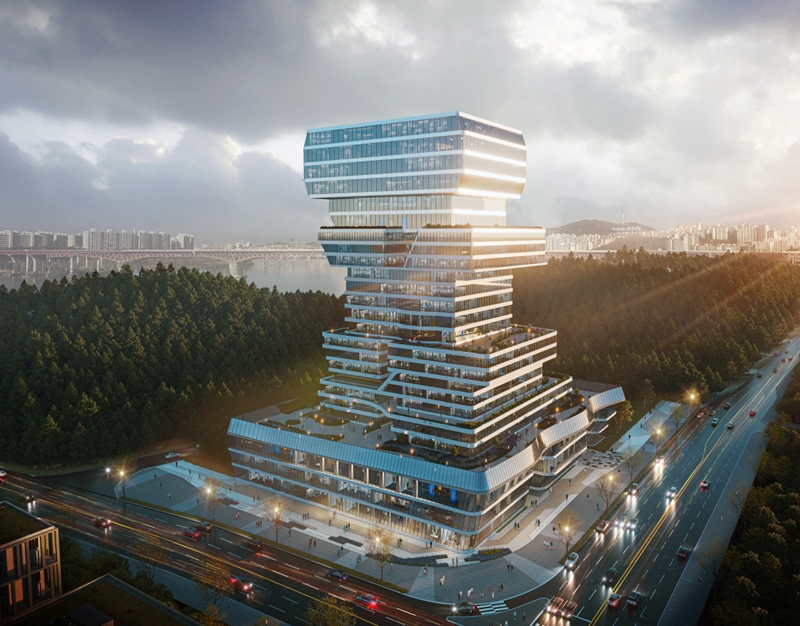 |
A computer-generated model of a new startup campus in eastern Seoul (Seoul Metropolitan Government) |
The Seoul Metropolitan Government on Wednesday unveiled a 1.67 trillion-won ($1.29 billion) spending package to grow South Korean startups and nurture futuristic technology over the next eight years.
Through the spending package, Seoul aims to foster at least 50 unicorns -- privately owned companies valued at over $1 billion -- with its focus on robots, financial technology, biotechnology and artificial intelligence.
Seoul Mayor Oh Se-hoon told reporters that startups in Korea are increasingly contributing to job creation and economic growth in the capital city, noting that the COVID-19 pandemic helped open the way for innovation from Seoul-based startups.
From 2012 to 2022, some 14,000 startups were founded in Korea's capital with the support of the city government, creating 23,000 new jobs and generating 5.7 trillion won in combined income, according to Seoul.
Startups nationwide became an emerging source of job creation over the last few years. Solely in 2022, some 34,000 startups hired over 56,000 new employees, accounting for 16 percent of all jobs created in the country, according to the Startups Ministry.
"Seoul will continue to invest to foster an environment where more talented young citizens look to entrepreneurship," Oh said.
"The pace of job creation from startups is three times faster than other industries, so we are seeing more career opportunities for the young generation in the startup scene," he added, citing central government data which showed that the degree of job creation among startups was 8 percent higher than the overall increase of 2.4 percent in 2022.
Some 40 percent of the total budget, or 650 billion won, will be allocated to training institutions that provide Seoul city-funded coding and programming courses, called the Seoul Software Academy. According to Seoul, about 10,000 students will finish courses at the academy, with the goal of getting hired at a startup. Around 34 percent of graduates from the institution get a job at a startup.
Another 580 billion won will be used to help startups dedicated to robots, fintech, biotech and AI commercialize their product and get funding.
The city's own pitch competition, "Try Everything," will gradually see a greater number of participants, larger prize money and bigger exhibitions, with 27.2 billion won in funding expected over the course of eight years.
Seoul aims to increase the number of startup hubs abroad from two --in Ho Chi Minh, Vietnam, and in Bengaluru, India -- to 20 by 2030, with a budget of 22.7 billion won. According to Seoul, Spain and Singapore are some of the candidates for the new locations.
Seoul city is the 12th-most competitive startup hub as of this year, down two notches compared to its 2022 ranking, according to Startup Genome.
The city is already home to some 30 startup hubs across the city, including a fintech lab in Yeouido, western Seoul, and a biotech research base in Hongneung, eastern Seoul. Moreover, 20 out of 22 unicorn startups are based in Seoul, according to the city.
By 2030, Seoul is working to turn a ready-mix concrete plant in the eastern part of the city near Seoul Forest Park into the world's largest startup campus, with a 106,000-square-meter floor area. The campus will be larger than Paris' Station F and Singapore's JTC Launchpad, according to the city. The new facility is expected to host some 1,000 startups, ranging from early-stage to late-stage.
In addition, a hardware manufacturing startup hub will be established in 2027 with a floor area of 17,000 square meters in western Seoul.







![[Today’s K-pop] Blackpink’s Jennie, Lisa invited to Coachella as solo acts](http://res.heraldm.com/phpwas/restmb_idxmake.php?idx=644&simg=/content/image/2024/11/21/20241121050099_0.jpg)